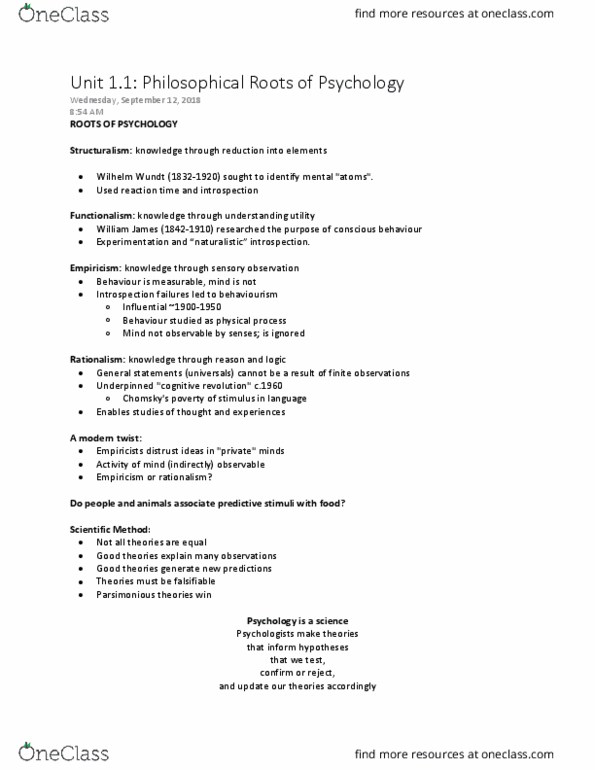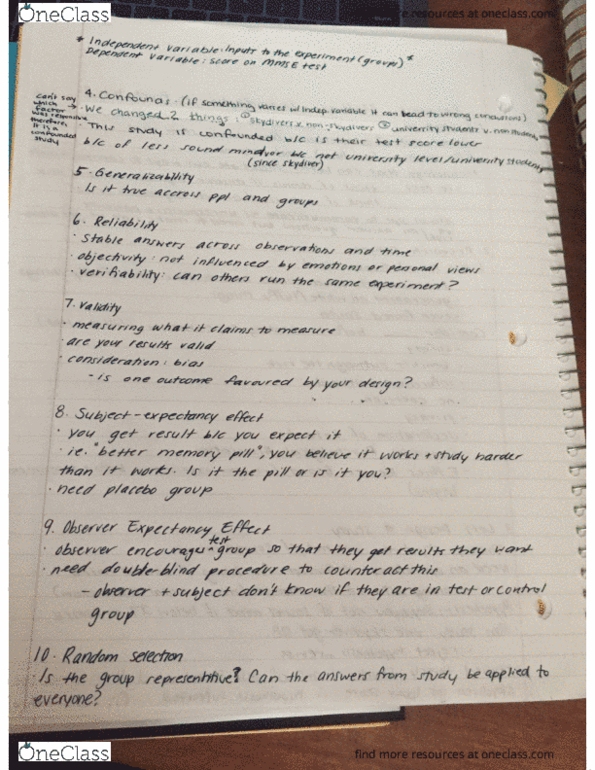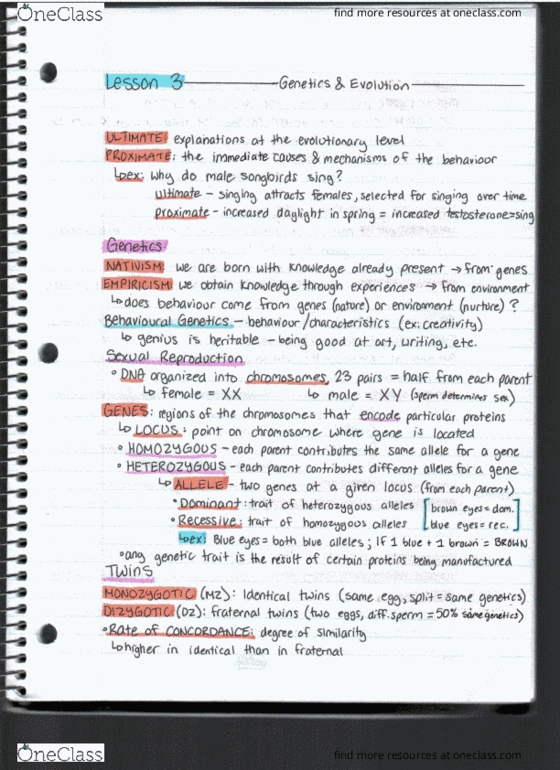PSYC 100 Lecture Notes - Lecture 1: Behaviorism, Empiricism, Wilhelm Wundt
PSYC 100 verified notes
1/12View all
Document Summary
Structuralism: knowledge through reduction into elements: wilhelm wundt (1832-1920) sought to identify mental "atoms", used reaction time and introspection. Functionalism: knowledge through understanding utility: william james (1842-1910) researched the purpose of conscious behaviour, experi(cid:373)e(cid:374)tatio(cid:374) a(cid:374)d (cid:862)(cid:374)aturalistic(cid:863) i(cid:374)trospectio(cid:374). Empiricism: knowledge through sensory observation: behaviour is measurable, mind is not. Influential ~1900-1950: behaviour studied as physical process, mind not observable by senses; is ignored. Rationalism: knowledge through reason and logic: general statements (universals) cannot be a result of finite observations, underpinned "cognitive revolution" c. 1960, chomsky"s poverty of stimulus in language, enables studies of thought and experiences. Scientific method: not all theories are equal, good theories explain many observations, good theories generate new predictions, theories must be falsifiable, parsimonious theories win.




